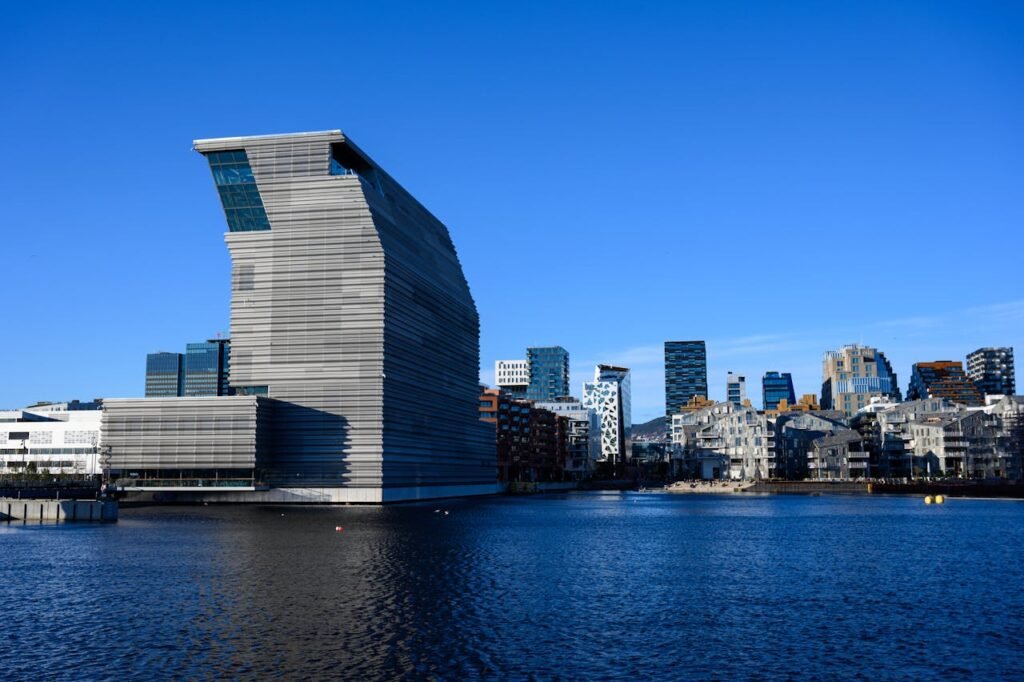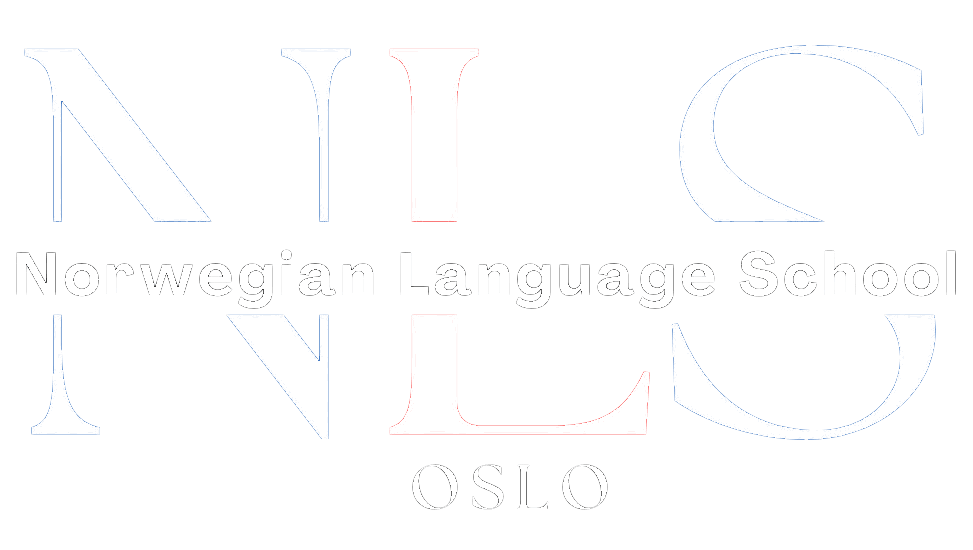

Unlock a World of Opportunities with NLS’s English Summer Courses in Oslo
Stepping outside your comfort zone can be one of the most powerful ways to grow, both intellectually and personally. If you are considering improving your English language skills while spending time in a captivating European city, the NLS Norwegian Language School in Oslo offers an ideal blend of structured learning, cultural exploration, and educational innovation. While the school is widely recognized for its Norwegian courses, it has also developed a robust English Summer Course curriculum, designed to meet the needs of learners at different proficiency levels—ranging from absolute beginners to advanced speakers.
This article will explore the multifaceted nature of these English Summer Courses, from the flexible scheduling options (1 to 8 weeks) to the detailed breakdown of proficiency levels (A0-A1, A2-B1, and B2-C1). You’ll also discover why Oslo is such a fantastic setting for immersive language study, how daily speaking classes can accelerate your fluency, and what kind of guidance and support NLS provides—particularly when it comes to navigating the local housing scene. Read on to learn how you can make the most of a summer that combines linguistic development with cultural enrichment.
Table of Contents
Toggle1. Why Learn English at NLS in Oslo?
1.1 A Language School with Proven Expertise
NLS Norwegian Language School may be renowned for teaching Norwegian, but its English programs are built upon the very same pedagogical principles that have made its Norwegian courses so successful: student-centered learning, communicative teaching methods, and practical application. English is a global language, and gaining confidence in it can open doors in your career, academics, and personal life. When you choose to study at NLS, you benefit from a supportive network of instructors who understand the nuances of language acquisition and are committed to seeing you succeed.
1.2 The Benefits of Studying Abroad
Oslo is much more than just a backdrop to your studies; it’s an integral part of the learning process. English is widely used in Norway, and you’ll find that many locals speak it fluently. This creates an environment where practicing English outside the classroom feels natural and low-pressure. Additionally, Oslo’s vibrant cultural scene—from music festivals to art exhibitions—offers limitless opportunities to engage with the city while using English in authentic situations.
1.3 Summer in Scandinavia
Summers in Oslo are pleasantly mild and filled with long daylight hours, thanks to the city’s northern latitude. Imagine studying during the day and then enjoying a relaxed stroll by the harbor at sunset—well past what might be considered “normal” bedtime in other parts of the world. This unique seasonal atmosphere contributes to a sense of adventure and well-being, creating an uplifting environment for absorbing new vocabulary and linguistic skills.
2. Course Breakdown: From A0 to C1
NLS’s English Summer Courses are structured around three key proficiency brackets: A0-A1, A2-B1, and B2-C1. This tiered system ensures that each participant can jump into a course that precisely matches their ability level, allowing for efficient progression and skill development.
2.1 A0-A1: The Beginner Stage
- Who Is It For?
Absolute beginners or those who have only the most rudimentary understanding of English. - What You’ll Learn
At this level, classes focus on essential vocabulary, fundamental sentence structures, and common phrases used in daily life. You’ll learn greetings, how to introduce yourself, how to discuss basic needs (such as asking for directions or ordering in a restaurant), and initial grammar concepts like simple present tense. - Learning Outcomes
By the end of the A1 level, you should be able to handle everyday situations in English with minimal stress. You will also have a foundation for further study, whether at NLS or elsewhere.
2.2 A2-B1: Transitioning to Intermediate
- Who Is It For?
Students who possess a basic grasp of English but still struggle with grammar, vocabulary range, or conversational skills. - What You’ll Learn
This level zeroes in on broadening vocabulary related to common topics, refining grammar (including past and future tenses), and introducing more complex sentence structures. You’ll practice speaking about personal interests, everyday life, and current events. - Learning Outcomes
By completing B1, learners can comfortably navigate routine tasks in English, such as making travel arrangements, holding simple telephone conversations, and discussing familiar subjects in moderate detail.
2.3 B2-C1: Building Advanced Proficiency
- Who Is It For?
Students who already possess a solid command of English, aiming to polish their language skills to a high level of fluency. - What You’ll Learn
Advanced classes focus on nuanced grammar (like passive constructions and complex conditional forms), topic-specific vocabulary, academic reading and writing, and extended conversation. There is also an emphasis on developing critical thinking and presentation skills in English. - Learning Outcomes
Successful C1-level learners are equipped to tackle professional or academic tasks in English, engage in debates, watch English-language media with minimal difficulty, and express themselves with clarity and subtlety.
3. Flexible Scheduling: 1 to 8 Weeks of Learning
One size does not fit all when it comes to language learning, and NLS understands that. Whether you have just a single week free in your schedule or can dedicate two full months to immersive study, you can choose a course duration that aligns with your personal, academic, or professional obligations.
- Short-Term (1-2 Weeks): A perfect “taster” session for those who want to dip their toes into the language. This brief stint can help you reinforce existing skills or gain an essential foundation before moving on to more intensive study elsewhere.
- Mid-Term (3-5 Weeks): Ideal for students looking to make significant strides. With nearly a month or more at your disposal, you’ll have enough time to tackle core grammar, engage in practical exercises, and begin noticing tangible improvements in both speaking and comprehension.
- Long-Term (6-8 Weeks): Recommended for learners who are serious about achieving a breakthrough in their fluency. Spending this extended period in Oslo not only supercharges your learning but also lets you deeply explore Norwegian culture, establish local friendships, and adapt your language skills to real-life situations day after day.
Whichever length you choose, the curriculum is designed to offer consistent progress without overwhelming you. Class schedules are typically divided between lectures, group work, and hands-on activities, ensuring each day brings new learning opportunities.
4. Enhance Fluency with Daily Speaking Classes
4.1 Why Speaking Classes Matter
Fluency isn’t just about knowing the grammar and vocabulary; it’s about being able to use those tools spontaneously in conversation. That’s where the daily speaking classes come into play. While the core program already includes a substantial speaking component, these optional sessions offer targeted practice for those who feel they need extra time to bolster their conversational confidence.
4.2 What to Expect
During speaking classes, you’ll be encouraged to discuss real-world topics ranging from cultural trends to professional scenarios, depending on your proficiency level. This could involve debates, role-play exercises, or even group presentations. The idea is to simulate real-life communication as closely as possible, allowing you to practice not just your language skills but also your ability to think quickly and adapt to new conversational directions.
4.3 Overcoming Speaking Anxiety
Many learners experience anxiety when speaking a foreign language. Daily speaking classes offer a supportive and controlled environment where you can gradually build your confidence. Instructors provide constructive feedback on pronunciation, vocabulary usage, and overall communication style. Over time, you’ll notice your hesitation diminishing and your spontaneity increasing.
5. The Oslo Advantage: Study in a Global City
5.1 English as a Bridging Language
Although Oslo is primarily Norwegian-speaking, English is the natural “bridging language” used by residents and international visitors alike. When you’re not in class, you’ll find ample chances to apply your newly acquired English skills. Whether you’re ordering coffee at a local café or asking for directions in a museum, everyday interactions become impromptu lessons that reinforce what you’ve learned in class.
5.2 Cultural and Historical Richness
Beyond the linguistic benefits, Oslo offers a wealth of cultural experiences. You can explore the Viking Ship Museum for a glimpse into Norway’s seafaring past, stroll through Aker Brygge to enjoy the waterfront atmosphere, or admire the sculptures at Vigeland Park. Each of these outings can double as a language-learning adventure, as you’ll find English-language explanations, tours, and signage nearly everywhere.
5.3 An Environment That Encourages Learning
Oslo is known for its safety, cleanliness, and modern amenities. This comfortable backdrop allows students to focus on their studies without the distractions that can come from navigating a more complex or chaotic environment. Moreover, Norwegians generally have a friendly and open-minded demeanor toward international visitors, which can make cultural integration feel seamless.
6. Teaching Approach: Communication-Centered Methods
The instructional philosophy at NLS focuses on communicative language teaching. Grammar rules and vocabulary lists are essential, but they are always embedded within real-life contexts. Rather than memorizing rules in isolation, you’ll engage in dialogues, group assignments, and individual presentations that demand active language use. This style of teaching transforms the classroom into a lively forum where every participant learns from one another’s perspectives and experiences.
6.1 Diverse Teaching Materials
Expect a blend of traditional textbooks, multimedia resources, and interactive digital platforms. Instructors might use short films to spark discussions on contemporary issues, or reading passages from news articles to introduce specialized vocabulary. By drawing from a wide range of materials, the classes remain engaging and relevant, catering to various learning styles—auditory, visual, and kinesthetic.
6.2 Continuous Feedback and Assessment
Regular assessments, whether they are quizzes, oral presentations, or written tasks, help track your progress. These evaluations are not meant to be intimidating, but rather to provide constructive insights into areas where you might need extra practice. Personalized feedback from teachers allows you to focus your efforts and ensures that no student falls behind.
7. Cultural Immersion Outside the Classroom
7.1 Organized Social Events
While studying new vocabulary and grammar is essential, real breakthroughs often happen outside the classroom. NLS often facilitates social gatherings, such as casual meet-ups, potluck dinners, or mini field trips around the city. Although you might expect Norwegian language usage in Norway, many of these social circles revert to English when they include international participants. This ensures that English learners still get valuable practice while forming genuine connections with others.
7.2 Volunteering and Internships
If you’re staying for a longer stretch, you might consider volunteering or interning with local community organizations or businesses. Oslo is home to a wide array of international NGOs, tech startups, and cultural institutions that welcome short-term assistance. Engaging in these environments forces you to communicate in English and also gives you insight into local work culture.
7.3 Making Lifelong Friends
It’s not uncommon for summer course participants to form close friendships with classmates from all over the world. Bonding over shared interests, you can practice English together in informal contexts, whether that’s going for weekend excursions to nearby forests or simply discussing the latest Netflix series over coffee.
8. Guidance (Not Provision) for Accommodation
A common concern for international students is finding a comfortable place to stay. While NLS Norwegian Language School does not provide on-site accommodation, they do offer guidance and support in your search. This may include:
- Lists of Recommended Websites: Online platforms where you can find short-term or long-term rentals, depending on your stay.
- Insights on Oslo’s Neighborhoods: Advice on which districts are more student-friendly, which areas offer quicker access to the school, and where you might find more budget-friendly options.
- Tips for Communicating with Landlords: Suggestions for drafting inquiries, discussing rental terms, and setting up visits.
Keep in mind that Oslo’s living costs can be higher than many other European cities. Budgeting in advance for rent, food, and public transportation is crucial. Additionally, exploring shared apartments or dorm-style accommodations can make your stay more affordable while also giving you daily chances to speak English with flatmates or neighbors.
9. Practical Tips for a Successful Summer
9.1 Plan Ahead
From confirming your course level to researching accommodation options, the earlier you start planning, the more seamless your experience will be. Make sure to communicate any specific needs or goals you have to the school’s staff so they can tailor your learning path and advice accordingly.
9.2 Embrace Technology
Smartphone apps—ranging from pronunciation tools to language exchange platforms—can supplement classroom learning. Setting your phone’s default language to English or following English-language social media accounts can also immerse you in the language day-to-day.
9.3 Stay Curious
Don’t limit your learning to the confines of the syllabus. Explore literature in English, watch movies without subtitles, or strike up conversations with international students. The more you expose yourself to the language in diverse contexts, the quicker you’ll internalize new concepts.
9.4 Balance Work and Play
Studying abroad can be overwhelming if you dive into textbooks all day. Give yourself permission to enjoy the city’s museums, parks, and nightlife. These experiences not only help you unwind but also expose you to English in a variety of social settings—arguably one of the best ways to cement what you learn in the classroom.
10. Registration and Next Steps
Enrolling in an English Summer Course at NLS Norwegian Language School is straightforward. Simply send an email to info@nlsnorwegian.no or call +47 90814756 to speak with a member of the admissions team. They’ll walk you through:
- Placement and Level Evaluation: Determining whether A0-A1, A2-B1, or B2-C1 is the right starting point for you.
- Scheduling and Duration: Deciding how many weeks to study and whether to include daily speaking classes.
- Logistical Support: Offering guidance on accommodation, public transportation, and what to expect upon arriving in Oslo.
Once you’ve finalized your enrollment, you can focus on getting ready for an unforgettable summer of language immersion. Review some basic English if you’re a beginner, or brush up on more intricate grammar points if you’re aiming for advanced fluency. Collect essential documents, arrange any necessary travel visas, and start planning your itinerary to discover Oslo’s rich cultural tapestry.
Conclusion
The English Summer Courses at NLS Norwegian Language School present an ideal opportunity for learners to boost their English skills while immersing themselves in the scenic and culturally rich environment of Oslo. From the beginner-friendly A0-A1 track to the advanced B2-C1 level, each course is tailored to accelerate your command of the language. The flexibility to choose between 1 to 8 weeks means you can fit the program into your unique summer schedule, and the option for daily speaking classes offers added depth for those eager to become fluent communicators.
Beyond classroom instruction, Oslo’s English-friendly atmosphere ensures constant opportunities to practice and refine your language skills. Whether it’s chatting with locals, exploring museums, or hanging out with fellow international students, you’ll find countless occasions to turn theoretical knowledge into practical ability. While NLS does not provide on-site lodging, their knowledgeable staff will gladly help you navigate Oslo’s housing market—guiding you toward neighborhoods and options that best suit your budget and lifestyle preferences.
For further details and to take that next pivotal step, reach out to NLS at info@nlsnorwegian.no or call +47 90814756. Embark on a journey that could reshape your linguistic prowess, enrich your cultural understanding, and give you memories that last a lifetime.
If you want to learn Norwegian, you can register for classes here. We look forward to hearing from you and helping you become fluent in Norwegian.






